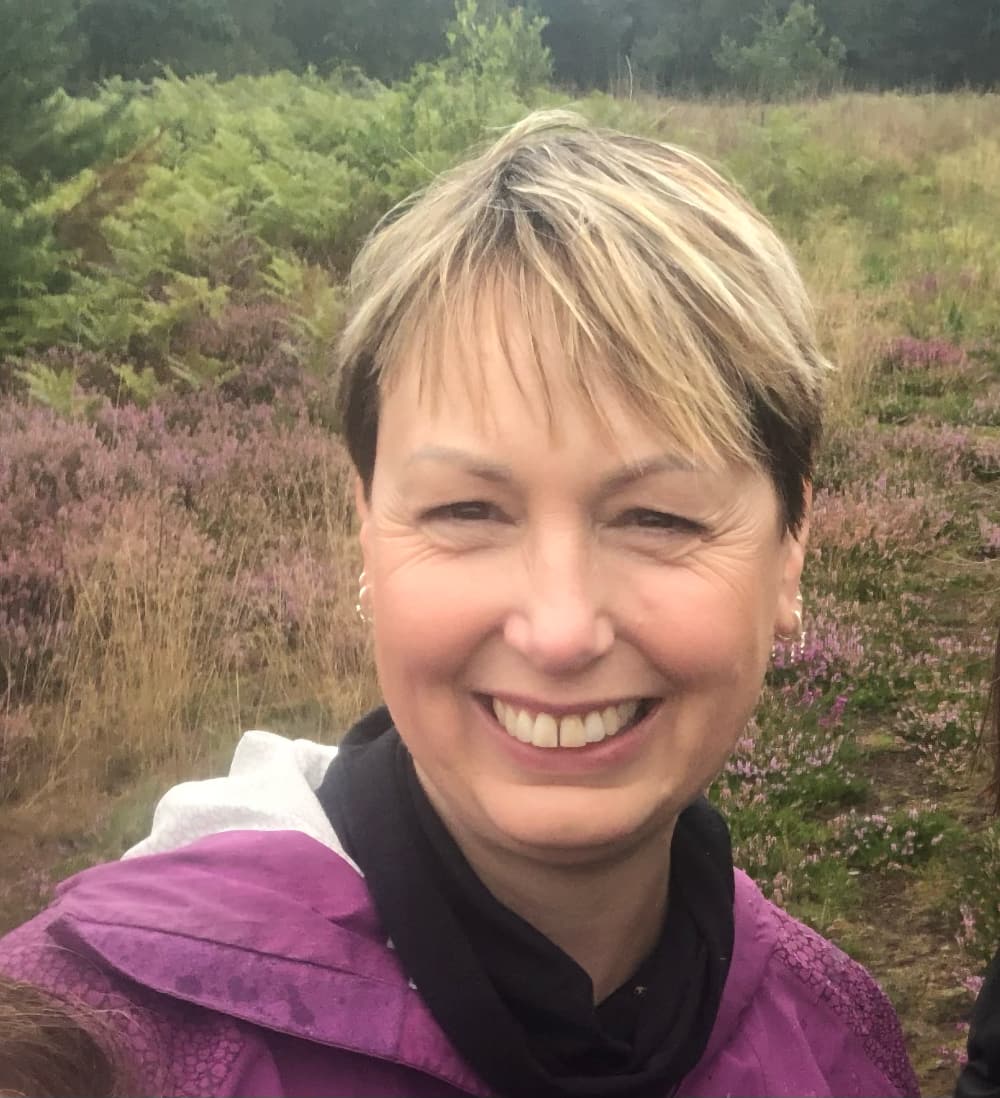When I was diagnosed with breast cancer in 2019, I was devastated. The following 18 months of surgery and treatment was gruelling. It had as much impact on my emotional wellbeing as it did my physical health. As a clinical psychologist, I knew I had to use my years of training and supporting others with their mental health, to cope with this intensely distressing experience. I drew upon my knowledge of Acceptance & Commitment Therapy (ACT) to help me through. Two key components of ACT are ‘being present’ and ‘doing what works’. Getting outside for walks in nature was one of the strategies for achieving these goals. And this helped me to cope with both the physical and mental side effects of my cancer journey.

Being present
So much of the time, our minds get caught up in ruminating over the past or worrying and catastrophising about the future. The present moment, right here right now, is usually tolerable, yet we spend very little time engaged in the present. When I felt down, when I found myself worrying about what was to come in terms of the brutal treatments, as much as I could, I got outside. When outside in nature, I would bring my attention to my surroundings. I would really look at the trees, the fields, the sky, the plants, the ground. I would engage my other senses, noticing the smells and the sounds. I would notice the physical sensations of walking; how it felt to put one foot in front of the other, how different muscles in my legs would engage and relax, the sensations of the ground beneath my feet. This mindfulness activity helped me to get out of my own head and into my body and my surroundings.
It wasn’t easy. Time and time again my mind would return to my worries. But each time I noticed it had wandered, as best I could, I would turn my mind back to my mindful walk. I tried to notice my judgements, that I was walking more slowly than usual or getting more out of breath, for example. And then I let them go; I avoided getting caught up in them and accepted that I was doing as best I could in that moment. Sometimes it was really hard physically, especially when feeling really unwell after chemotherapy. But I focused on just getting outside, even just to walk around the garden.
Invariably when returning inside, my mood was different to when I left the house. The worries would still be there but they would feel less intense. My mind was less engaged with them. I would have more energy and feel less down. I could make better decisions about what was going to be helpful for me to do next; get some small chores done, do some work emails, or simply relax.
Doing what works
When we are caught up with our unhelpful thinking or being driven by our emotions, we often end up responding in ‘automatic pilot’. We don’t think about what will be most helpful or effective, but instead respond based on our impulses and our previous behavioural patterns. Going through cancer treatment often requires reviewing your usual ways of being and making some adjustments. For example, I am someone who has always thrived on being busy, taking on multiple work challenges and having a very active social life. But trying to maintain this through my cancer treatment would have left me feeling even worse physically, I wouldn’t have been able to maintain it and therefore I would have judged myself as “failing”. Instead, I had to think about what was going to be effective for me. I had to reduce my workload and social life and focus on doing what I needed to do for my own wellbeing. Getting outside for a walk in nature was key. Of course, working and socialising were still important, but I had to make sure these activities were now part of a wider repertoire of self-care behaviours.
During treatment, I encountered many situations where I could easily get caught up in unhelpful thinking which would get in the way of doing what was effective. Despite knowing that getting outside for a walk was helpful, my mind still tried to tell me that I was too tired and that I should just sit on the sofa binge watching on Netflix. Now, binge watching on Netflix was a big part of my cancer journey and often ensured I kept boredom at bay. But, not getting outside at all on any given day, was not going to help me. Whilst watching TV, my brain was still capable of getting caught up in unhelpful spirals of negative thinking about the future that would leave me feeling down and anxious. Forcing myself to get outside into nature and engaging mindfully in my surroundings was what was effective, despite what my mind was telling me.
Being in nature has been shown to reduce stress, improve mood and enhance cognitive function. Walking is often possible during cancer treatment even when more vigorous forms of exercise prove to be too much. And walking, as with other types of exercise, releases endorphins which improve our mental wellbeing. So, notice what your mind tells you that might get in the way of you getting outdoors. And practice stepping back from these thoughts to consider whether they are helpful for you. If not, perhaps you can try getting outdoors to mindfully engage in nature and see for yourself the effect on your emotional wellbeing.
Dr Sarah Swan
Consultant Clinical Psychologist
The Swan Consultancy
Dr Swan’s book ‘Coping with Breast Cancer; how to navigate the emotional impact throughout your journey’ is available here: https://www.sequoia-books.com/catalog/swan/

